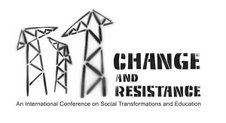Constructing the ‘Revolution’: Social change, national commemoration and the management of accountability and legitimacy in Romanian political discourse
Cristian Tileaga
University of East London
This paper addresses the various ways in which the ‘Revolution of 1989’ has been represented and constructed by political leaders who were at the heart of the December events, during several relatively recent commemorative addresses in the Romanian parliament. A critical discursive analysis of political discourse based on ideological rhetorical analysis (Billig, 2004; Chilton, 2004; Chilton and Schaffner,1997) and insights from membership categorization analysis (Sacks, 1995; Eglin and Hester, 2003) was used. Several political speeches were analysed leading to the identification of a series of descriptive features: a) the idea of ‘revolution’ as a general, historical process and, b) essential stage in the development of a unified Romanian nation. These features were embedded in narratives of comprehensive political change and future of the nation. It is argued that their main ideological function is that of framing/reframing, controlling the various interpretations, public (categorical) reformulations of the event(s). It is also argued that such a discourse disconnects the ‘revolution’ from its controversial particulars and delegitimizes criticism. This is a preliminary attempt to critically examine the Romanian political imaginary regarding one of its most controversial historical events. Implications for a political psychology of social change, political legitimacy and representativeness are drawn.
Subscribe to:
Post Comments (Atom)

1 comment:
very well written, very interesting subject
Post a Comment